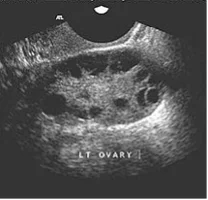Treatments for PCOS is individualised according to your symptoms.
The mainstay of treatment is lifestyle changes such as exercise, healthy diet and achieving an optimum weight as this can restore release of egg and regular periods and improve long term health conditions such as heart disease and diabetes.
If you are overweight, this condition will improve with losing weight. Healthy weight is a BMI of 19-25, please refer to
https://www.nhs.uk/live-well/healthy-weight/bmi-calculator/ for calculation of your BMI.
Healthy Mediterranean diet with plenty of fruit and vegetables, olive oil, oats, sweet potatoes, beans pulses, fish and avoiding saturated fats is recommended.
